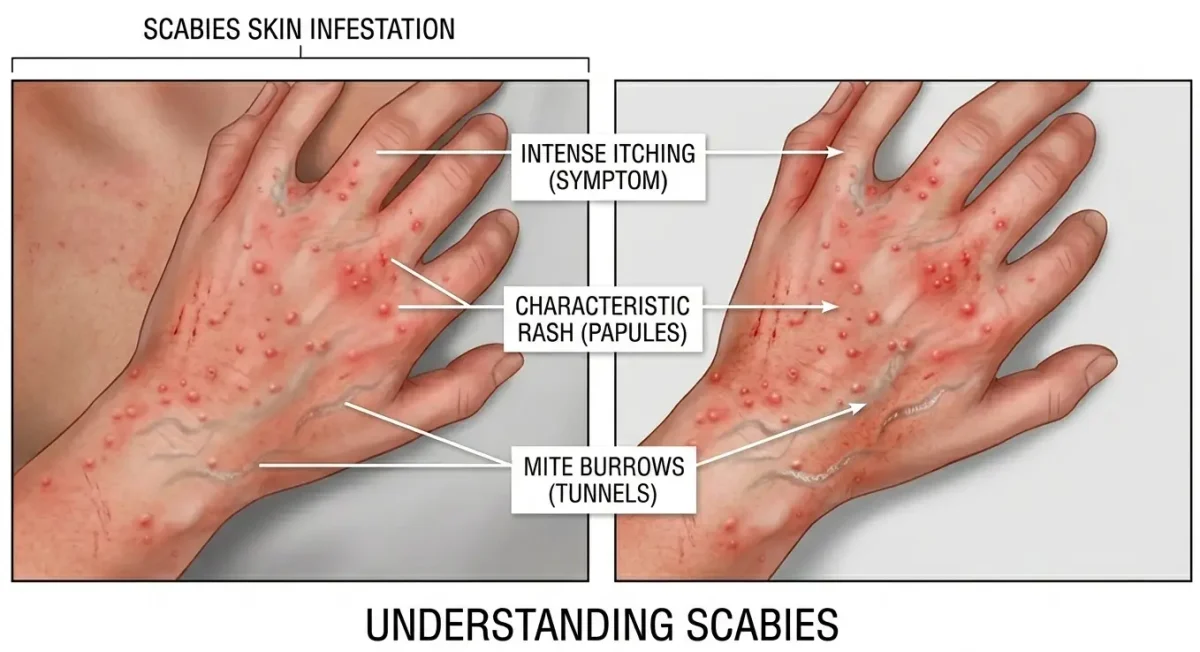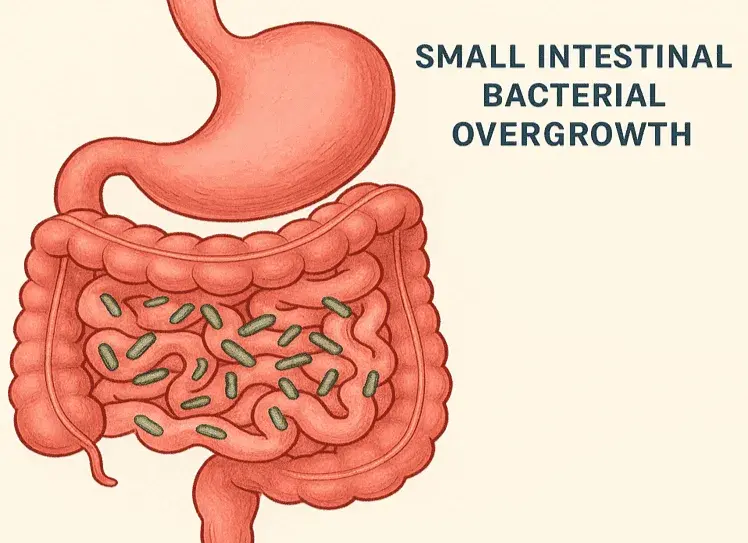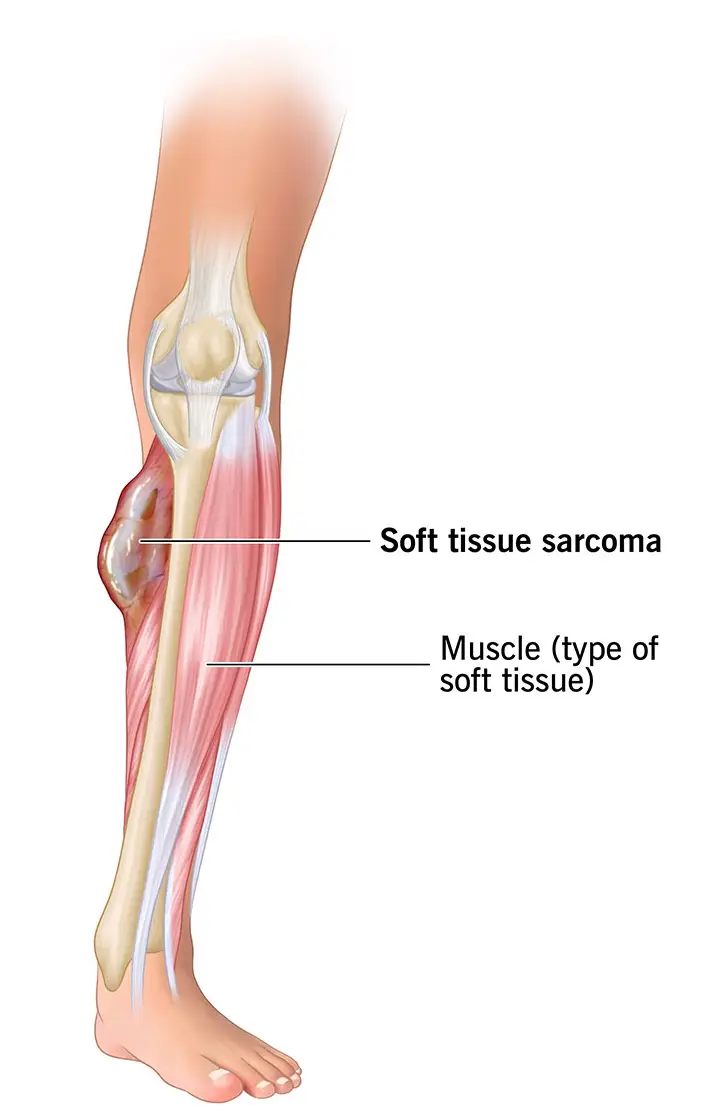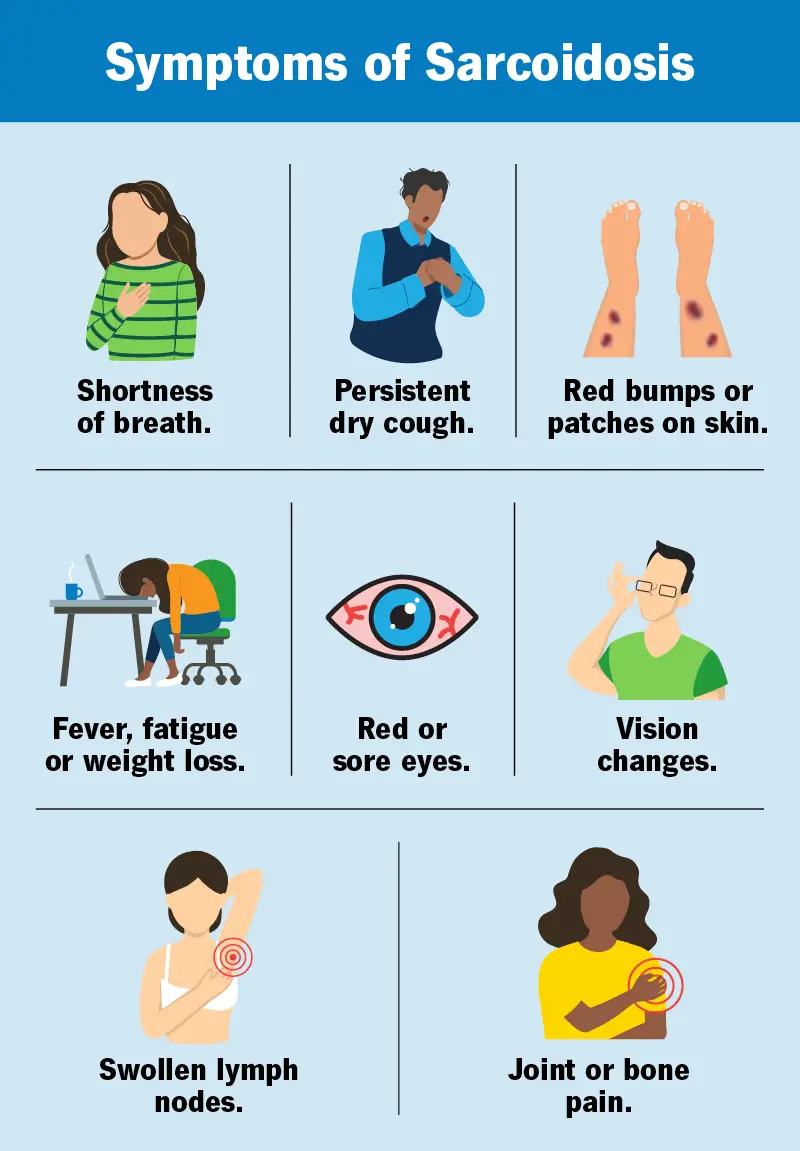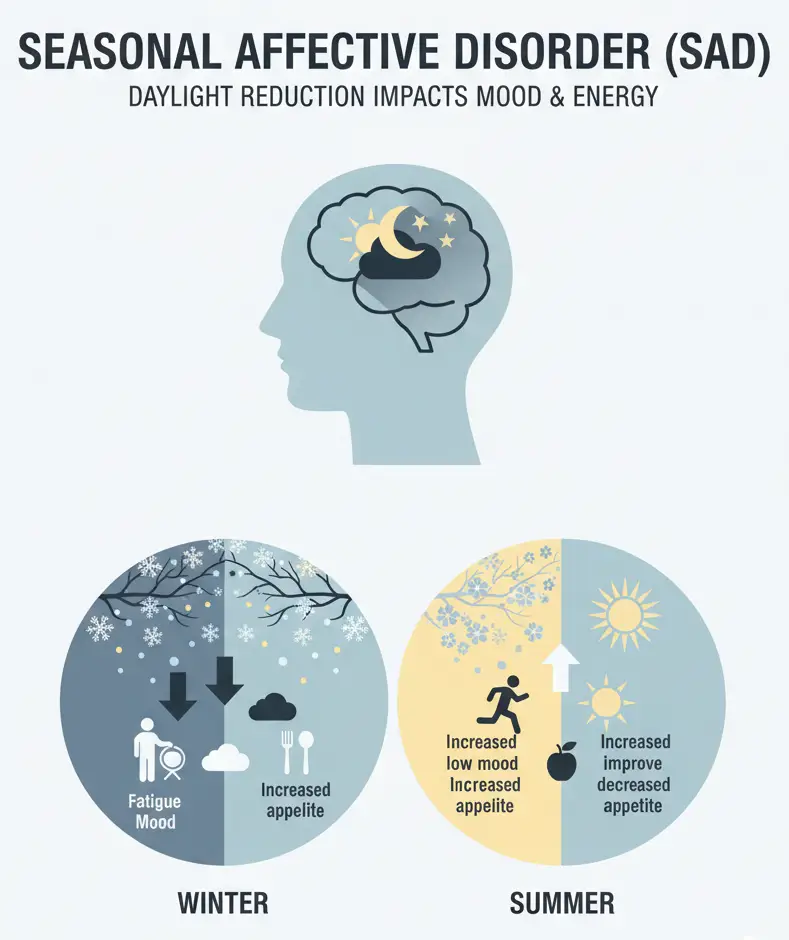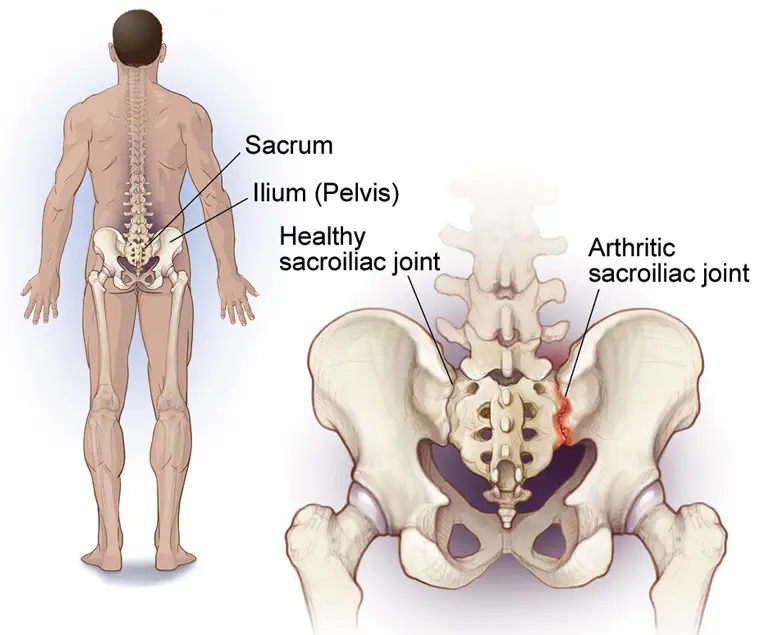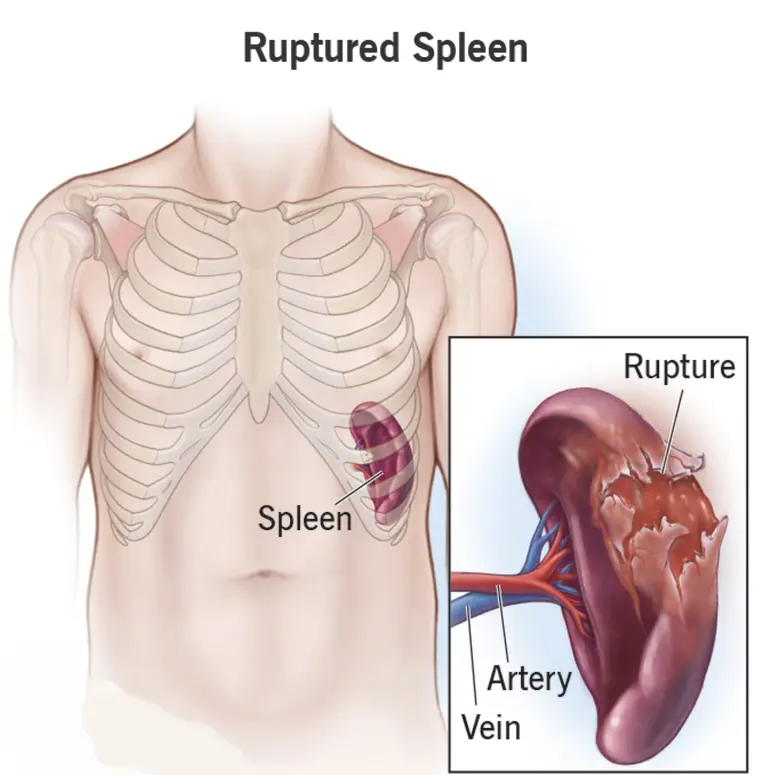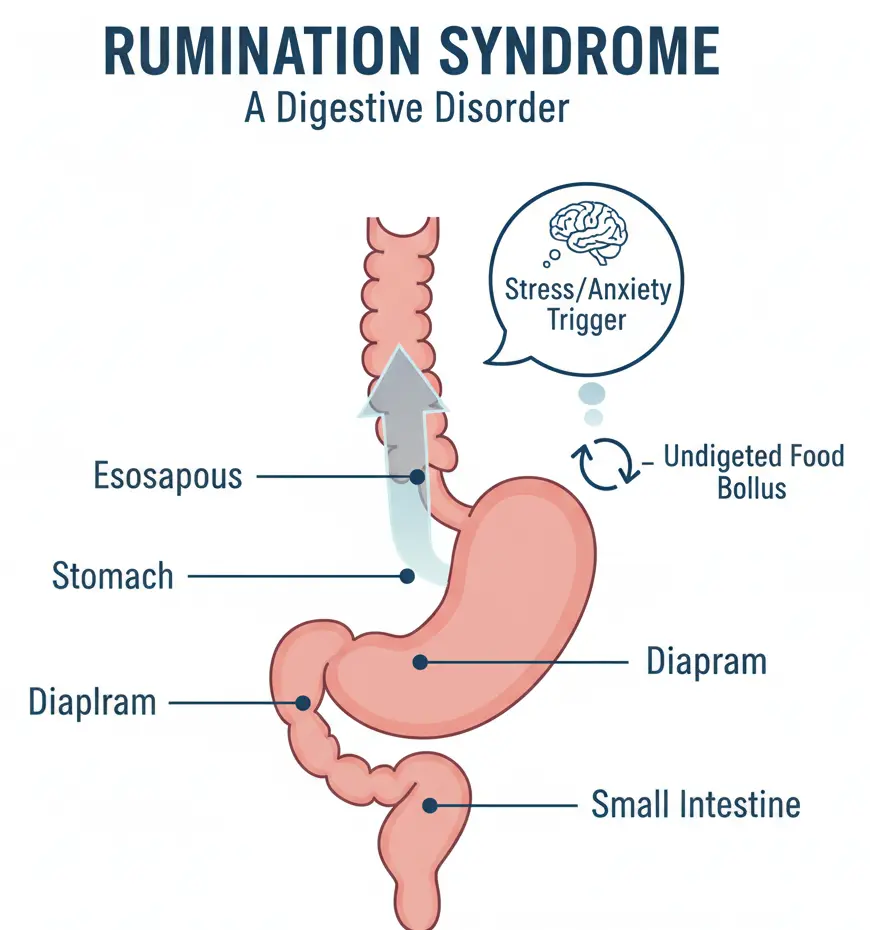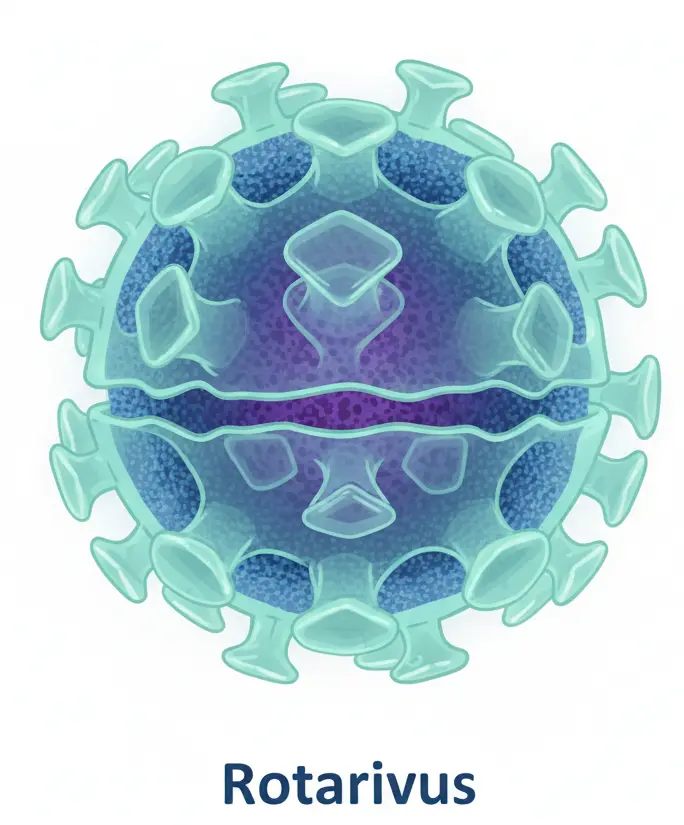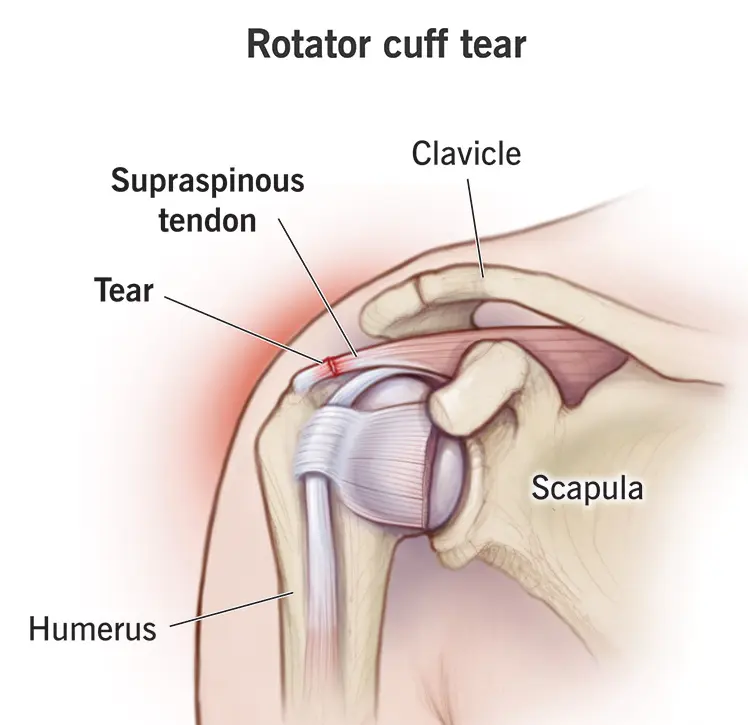Scabies is a highly contagious skin condition caused by a microscopic mite called Sarcoptes scabiei. The mites burrow into the upper layer of the skin, where they live and lay eggs. This leads to intense itching and a characteristic skin rash. Scabies can affect people of all ages and backgrounds and spreads easily through close physical contact. Although scabies is …
Small Intestinal Bacterial Overgrowth (SIBO)
Small intestinal bacterial overgrowth is a digestive condition in which excessive amounts of bacteria grow in the small intestine. Normally, the small intestine contains relatively few bacteria compared to the large intestine. When bacterial balance is disrupted, digestion and nutrient absorption can be impaired. Small intestinal bacterial overgrowth can cause persistent gastrointestinal symptoms and may lead to nutritional deficiencies if …
Sarcoma
Sarcoma is a rare type of cancer that develops in the body’s connective tissues. These tissues include bones, muscles, fat, blood vessels, nerves, cartilage, and tendons. Unlike more common cancers that start in organs such as the lungs or breast, sarcomas arise from supporting and structural tissues. There are two main types of sarcoma: soft tissue sarcoma and bone sarcoma. …
Sarcoidosis
Sarcoidosis is an inflammatory disease characterized by the formation of small clusters of inflammatory cells called granulomas in various organs of the body. It most commonly affects the lungs and lymph nodes but can involve the skin, eyes, heart, liver, and other organs. The exact cause of sarcoidosis remains unknown, and its severity can range from mild to life-threatening. In …
Seasonal Affective Disorder (SAD)
Seasonal affective disorder, commonly known as SAD, is a type of depression that follows a seasonal pattern, most often occurring during the fall and winter months when daylight hours are shorter. It affects mood, energy levels, and daily functioning and typically improves during spring and summer. SAD is believed to be linked to reduced exposure to sunlight, which can disrupt …
Sacroiliitis
Sacroiliitis is a painful condition caused by inflammation of one or both sacroiliac joints, which connect the lower spine to the pelvis. These joints play an important role in transferring weight and movement between the upper body and the legs. Inflammation in this area can lead to persistent lower back and buttock pain that may worsen with standing, walking, or …
Ruptured Spleen
A ruptured spleen is a serious medical emergency in which the spleen, an organ involved in filtering blood and supporting the immune system, tears or bursts. This condition often results from trauma, such as a car accident, sports injury, or fall. A ruptured spleen can cause internal bleeding, leading to life-threatening complications if not treated promptly. Symptoms of Ruptured Spleen …
Rumination Syndrome
Rumination syndrome is a chronic digestive disorder in which recently eaten food is regurgitated, re-chewed, and either re-swallowed or spit out. Unlike vomiting, this process is usually effortless and occurs without nausea. It most commonly affects infants, children, and adults under stress, and it can lead to nutritional deficiencies and social distress if not recognized. Symptoms of Rumination Syndrome Symptoms …
Rotavirus
Rotavirus is a highly contagious virus that is a leading cause of severe diarrhea in infants and young children worldwide. The infection primarily affects the gastrointestinal tract and can lead to dehydration if not managed properly. Rotavirus illness is most common in children under five years of age, although adults can also become infected, usually with milder symptoms. Vaccination has …
Rotator Cuff Injury
A rotator cuff injury involves damage to the group of muscles and tendons that stabilize the shoulder joint and allow smooth arm movement. These injuries can range from mild inflammation and strain to partial or complete tendon tears. Rotator cuff injuries are common in athletes, people with physically demanding jobs, and older adults due to wear and tear over time. …
